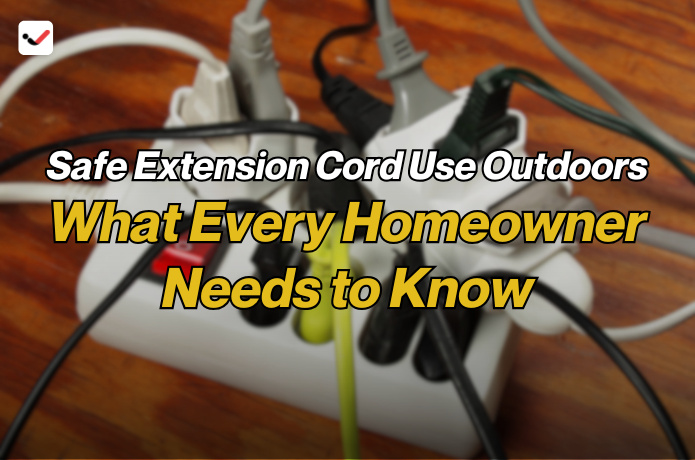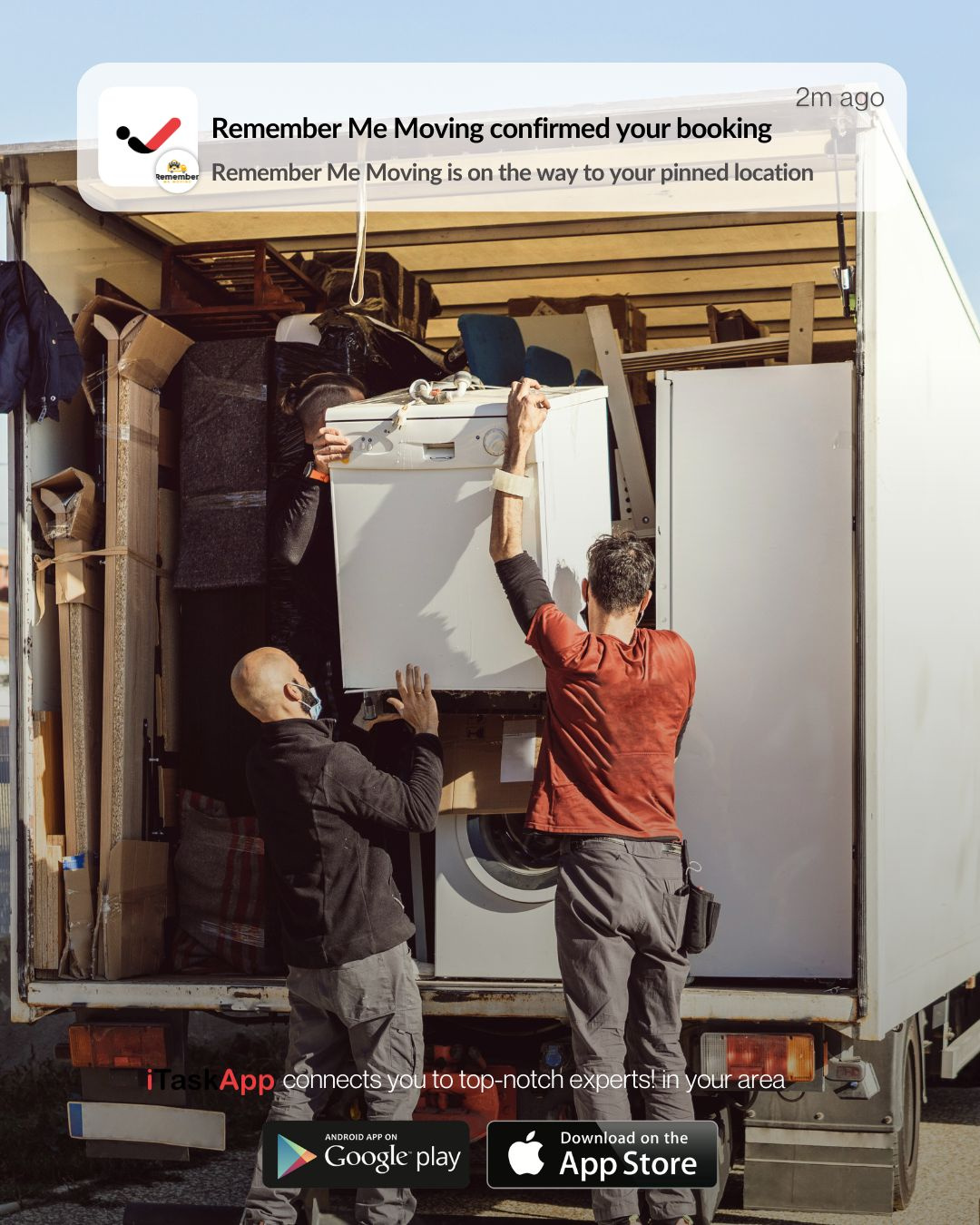Safe Extension Cord Use Outdoors: What Every Homeowner Needs to Know
Safe Extension Cord Use Outdoors: What Every Homeowner Needs to Know

Using extension cords outside can be very helpful, especially when you're working on your yard, decorating for the holidays, or running power tools. But outdoor electrical safety is something every homeowner should take seriously. If you use the wrong cord or don't follow safety guidelines, you could end up causing a fire, damaging your equipment, or even getting hurt. That’s why knowing how to safely use an extension cord outdoors is just as important as choosing the right one.
Many people assume all extension cords work the same way, but that’s not true. Outdoor extension cords are made to handle different conditions, such as rain, dirt, and sunlight. Indoor cords aren’t built for the same wear and tear, and using them outside can be dangerous. This article explains how to choose the best extension cord for outdoor use and how to use it safely. Whether you’re a new homeowner or have lived in your house for years, these simple tips can help keep your home safe.
Choose the Right Extension Cord for Outdoors
Not all extension cords are safe for outdoor use. Look for a cord labeled *"outdoor use"* or marked with a “W” on the packaging. These cords are made with a stronger outer jacket that protects the wires inside from moisture, sunlight, and temperature changes. Using an indoor cord outside can be a fire hazard or cause an electric shock, especially if it gets wet.
The best outdoor extension cords are also grounded. This means they have three prongs instead of two. The third prong is there to protect you from electrical shocks by sending extra electricity safely into the ground. Always check that your outdoor outlets are also grounded and in good working condition before plugging anything in.
Understand the Cord’s Power Rating
Every extension cord has a power rating, which tells you how much electricity it can handle safely. Using a cord that can't handle your equipment's power needs can cause it to overheat, melt, or start a fire. Look for the cord’s rating printed on the label or on the cord itself. The length of the cord also matters—longer cords carry less power, so you may need a heavierduty cord if it’s longer.
For example, if you're using the extension cord for a lawn mower or leaf blower, choose a cord that’s rated for at least 13 amps. For larger equipment, like a pressure washer, you may need a cord that can handle 15 amps or more. Always match the cord’s rating with the tool you're using.
Keep Extension Cords Dry and Off the Ground
Even though outdoor extension cords are weatherresistant, it’s still important to keep them dry whenever possible. Don’t let them sit in puddles or wet grass, and never use a cord during heavy rain. Water and electricity don’t mix, and wet cords can be very dangerous.
To protect your cords, consider using outdoor cord covers or raised hooks to keep them off the ground. You can also use weatherproof extension cord boxes or plug covers. These simple tools can help keep moisture out and prevent damage. This is especially helpful during outdoor holiday lighting or when powering equipment in damp areas.
Don’t Overload the Circuit
Just because your extension cord can handle the tool doesn’t mean your home’s electrical circuit can. If you plug in too many devices at once or use several cords connected together (also called “daisy chaining”), you risk overloading the circuit. This can trip your breaker or even start a fire.
Try to use only one extension cord per outlet. If you need more power in your yard or garden, talk to a licensed electrician about installing a new outdoor outlet or dedicated circuit. Proper outdoor electrical wiring makes it easier and safer to use tools and appliances.
Avoid Permanent Use
Extension cords are not meant to be a permanent solution. If you find yourself using one all the time for the same task, it’s time to consider a more permanent fix. This could mean adding more outlets outdoors, installing motionsensor lights, or using batterypowered tools.
Leaving cords outside for too long can lead to cracking, damage from UV rays, and wear from animals or lawn equipment. When you’re done using your extension cord, unplug it, coil it properly, and store it in a dry place. This will help it last longer and stay safe.
Inspect Your Extension Cords Often
Make it a habit to check your outdoor cords regularly. Look for any cuts, fraying, exposed wires, or damage to the plug. If a cord is damaged, don’t try to fix it with tape—throw it out and replace it. Using damaged cords is one of the main causes of outdoor electrical fires.
Also, inspect the outlet where you're plugging in the cord. If it feels warm, smells like something’s burning, or if your tool starts working poorly, stop using it right away. These could be signs of an electrical problem.
Use a GFCI Outlet or Adapter
A Ground Fault Circuit Interrupter (GFCI) is a safety device that shuts off electricity if it detects a problem, like water or a short circuit. Most newer homes already have GFCI outlets outside, but if yours doesn’t, you can buy a GFCI adapter and plug it into your regular outlet. This adds an extra layer of protection for outdoor electrical safety.
GFCI protection is especially important when using extension cords near water, such as by a pool or in the garden. It can help prevent electric shock and is a small investment that can save lives.
Don’t Run Cords Through Windows or Doors
It may seem like a simple solution, but running extension cords through windows or doors is not safe. The pressure from closing them can damage the cord and expose the wires inside. This can lead to shocks, fires, or even cause your tool to stop working properly.
Instead, use proper outdoor outlets or consider installing one in a safe, easytoreach place. This reduces the need to rely on cords coming from inside your house, which helps keep your home safer and more efficient.
Store Cords Safely After Use
When you're finished using an outdoor extension cord, unplug it and wind it up loosely to prevent tangles and damage. Don’t wrap it too tightly, as this can weaken the internal wires over time. Store it in a clean, dry place like a garage or shed.
Keeping cords off the ground and away from sharp tools or chemicals will help them last longer. Also, storing cords away from direct sunlight can prevent the outer layer from cracking or breaking down.
Outdoor extension cords are very useful for many home projects, but they must be used carefully. Choosing the right cord, keeping it dry, avoiding overloading, and storing it properly are all important steps in using extension cords safely outdoors. Paying attention to outdoor electrical safety can protect your home, your tools, and your family.
Whether you're setting up lights, doing lawn care, or working on a backyard project, using extension cords the right way will help you get the job done without any risks. Taking these simple steps ensures you can enjoy your outdoor space safely all year round.

